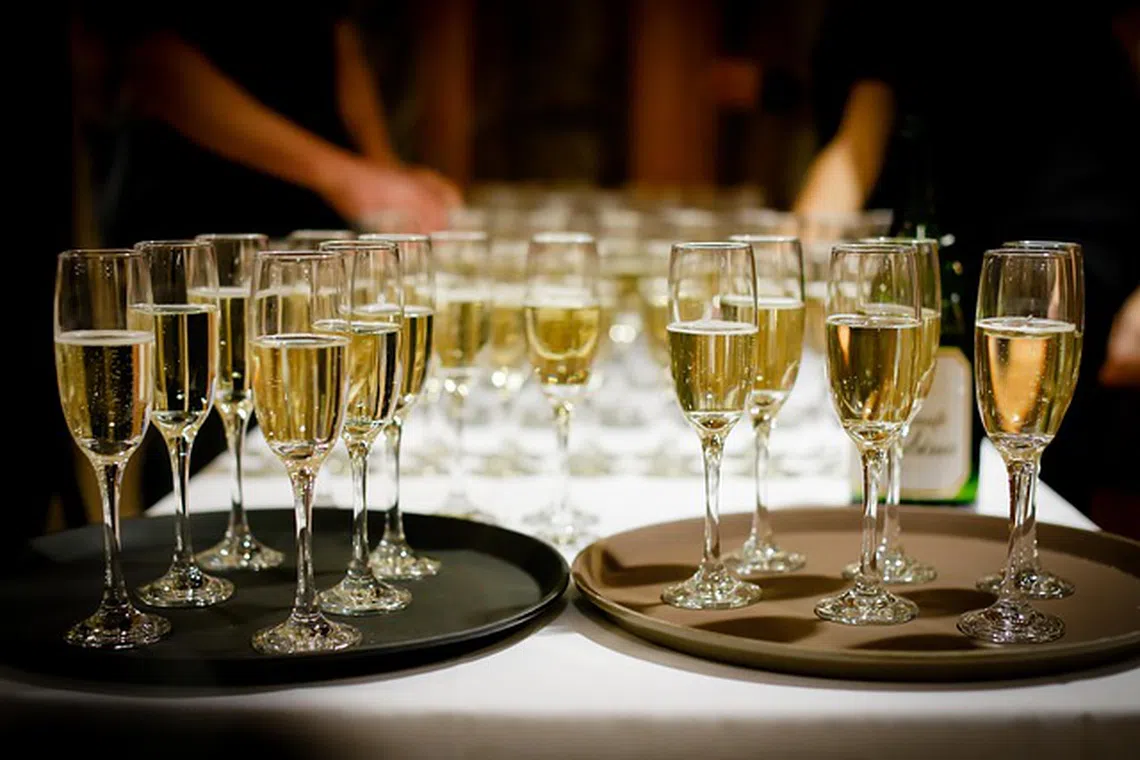Champagne demand softens after post-Covid-19 boom years, LVMH says
Sign up now: Get ST's newsletters delivered to your inbox

Organic sales at LVMH's drinks unit fell 3 per cent in the first half, hurt by a slowdown in cognac consumption in the US.
PHOTO: PIXABAY
PARIS – Demand for LVMH’s champagne brands is moderating in 2023 after the boom that followed Covid-19 lockdowns, according to a top executive at the luxury conglomerate.
There was a “general sense of revenge pleasure” in 2021 and 2022 after consumers were stuck at home, Moet Hennessy chief executive officer Philippe Schaus said in an interview. The drinks and wines division he oversees generated about 7.5 per cent of first-half revenue at parent company LVMH.
“The year of 2023 is a bit more complicated, because this effect of Covid-19 is fading out, and there’s a lot of inflation in all countries,” Mr Schaus said. “So we see that we are going back to normal.”
Mr Schaus pointed to a drop in champagne consumption at home, but other markets are holding up well.
“We have seen this summer that there was no abating of the demand for high-end champagne” in beaches and nightclubs across the Greek island of Mykonos and the Italian Riviera, as well as top restaurants in Paris, Mr Schaus said. The division’s brands include Dom Perignon, whose Plenitude 2 vintage 2004 costs €495 (S$720) a bottle in France.
Organic sales at the drinks unit fell 3 per cent in the first half, hurt by a slowdown in cognac consumption in the United States.
LVMH’s wines and spirits division has been acquisitive in the recent past, with deals including an investment in the pricey champagne label Armand de Brignac, co-owned with rapper Jay-Z. Earlier this year, LVMH bought a majority stake in rose winemaker Chateau Minuty.
Mr Schaus said LVMH is not looking at buying more alcohol brands, describing its portfolio as strong. But he expects more consolidation in the Champagne region.
“There are about 300 champagne maisons so... there will be mergers, for sure, because 300 is a lot,” he said. “It’s super-fragmented.”
The Luxembourg-born executive spoke at Chateau de Saran, which is surrounded by vineyards belonging to Moet & Chandon near the town of Epernay in northern France. The interview took place during the harvesting period, known as les vendanges.
Mr Schaus said volumes are plentiful. Rising temperatures have made yields more erratic, but the industry has been resourceful and has adapted to climate change over the past few centuries, he said.
“Champagne will continue to evolve. But I promise you, in 100 years, people will still be doing Dom Perignon and Moet & Chandon.”
LVMH is the biggest maker of champagne since it also owns the Krug, Ruinart, Veuve Clicquot and Mercier labels.
Comite Champagne, the industry trade group, in July said it expects its producers to ship 314 million bottles in 2023, down 3.7 per cent from 2022. BLOOMBERG


